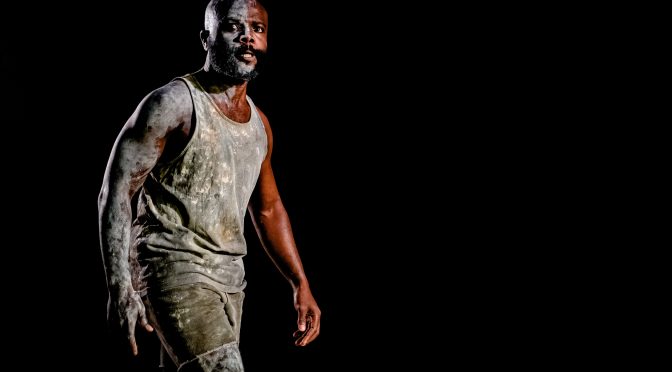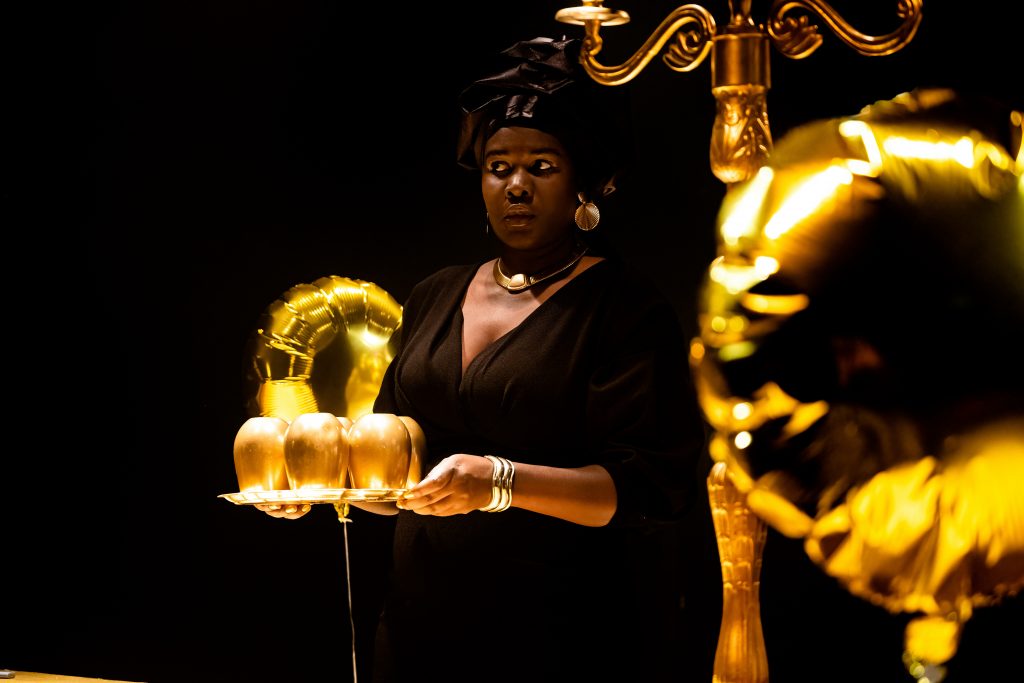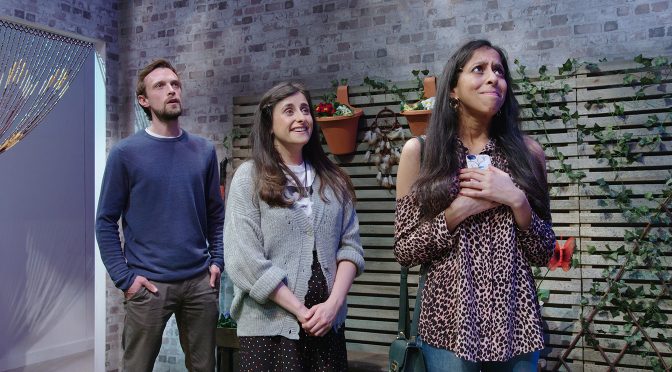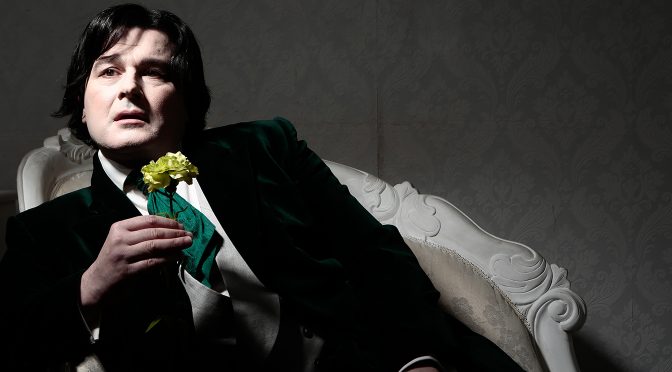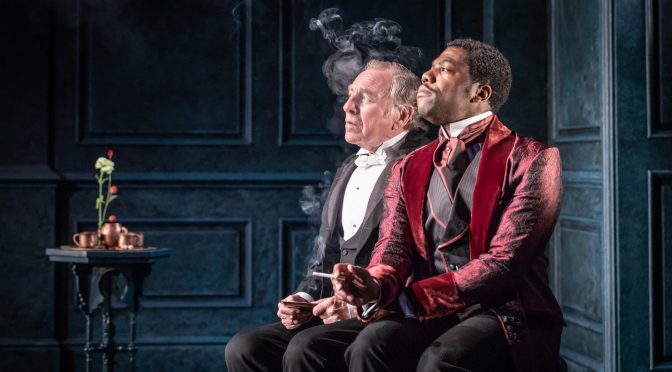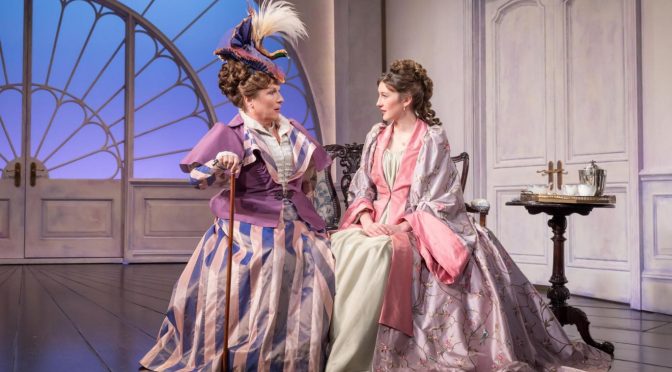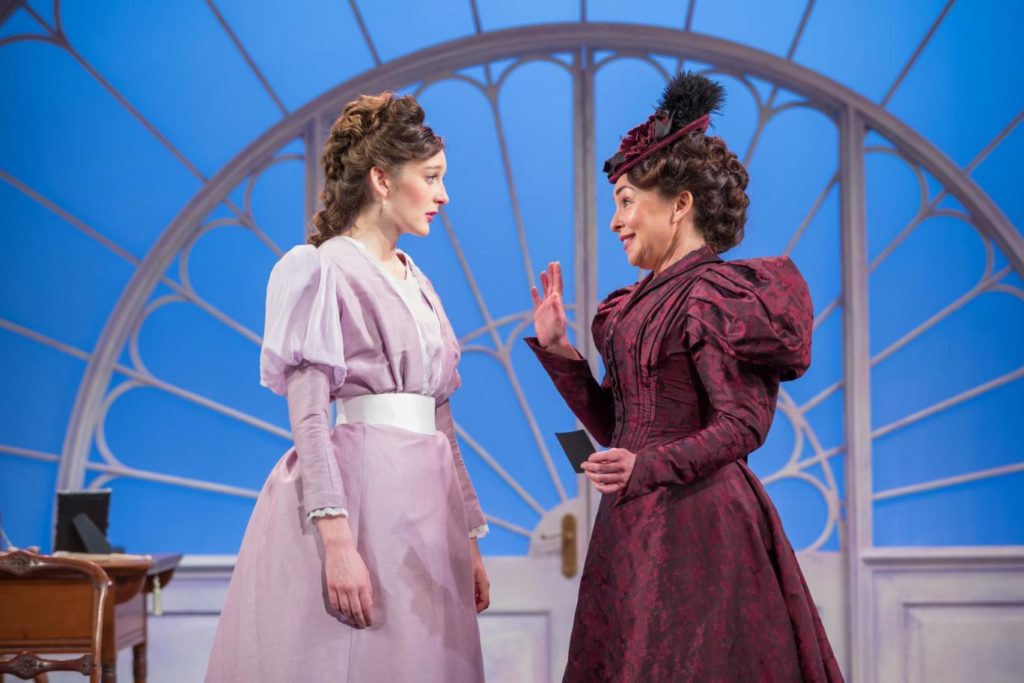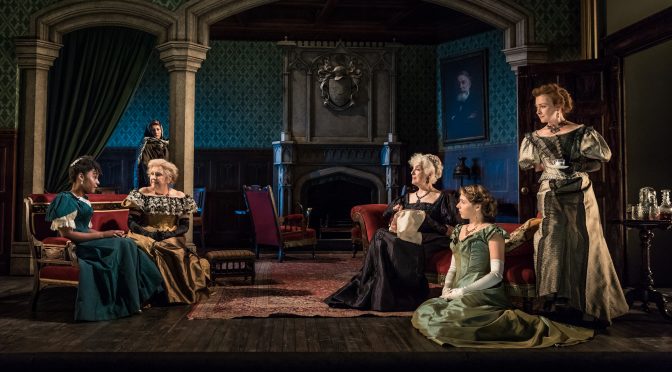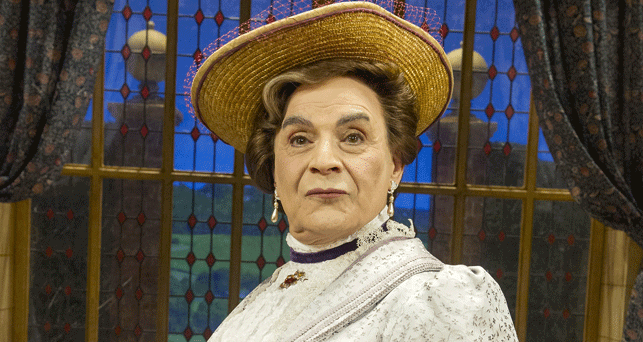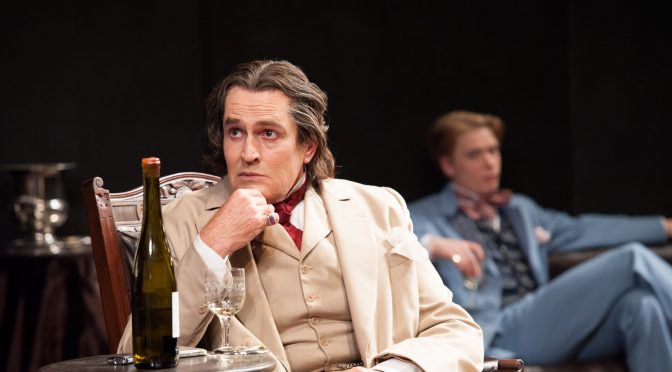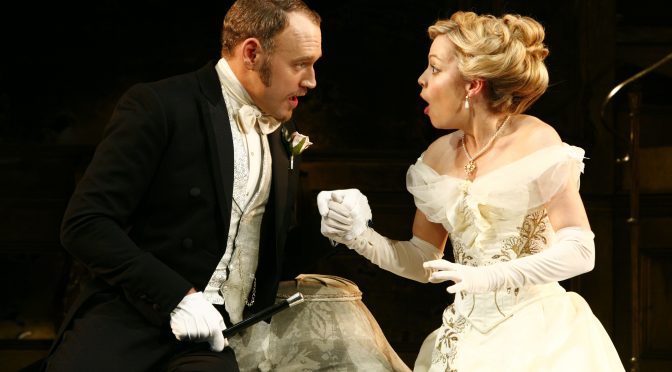Kip Williams’ adaptation of Oscar Wilde’s novel is unquestionably accomplished. Its sole performer Sarah Snook – yes, she takes all the roles – deserves ovations. And technically the production itself is just as impressive. Best of all, the actor and the tech work together. It’s easy to get excited about it all.
Snook is not alone… in two senses. First, she is acting with herself. She starts off slow, adopting different personas for the aesthete Lord Wotton, the painter Basil Hallward and his subject, Dorian. It’s clear Snook has each character well developed. All the while, she is filmed live and projected on to big screens. It’s well done, but we’ve seen it before.
Then Snook starts to perform with recordings of herself. The different characters appear on the screens. And the screens start to move. There’s a huge team behind this – 14 take a bow – not only filming but dressing and moving scenery around (Marg Horwell’s design is great). There’s a danger of distraction as the crew is so fascinating. And, at the risk of sounding old and grumpy, you do end up spending a lot of time looking at screens.
Yet nothing can detract from Snook’s achievement. Solo shows of this kind (such as Andrew Scott’s amazing Vanya from last year) often astound. There’s a sense of wonder that the actor can keep up with it all. And it’s worth noting that, while Williams’ adaptation helps to make the action clear, the show is… louder than Scott’s efforts. There are some odd musical choices and lots of overemphasis. But there’s no doubt it’s a brave performance. Having her face close-up on massive screens shows that Snook, unlike Dorian, has no vanity, and she finds the raw emotion behind Wilde’s elegance.
Is it churlish to want any more from a night at the theatre? Williams has brought the page to the stage with novelty and made it modern. The use of filters and selfies is brilliant (although, surely, not as low-fi as it pretends – video designer David Bergman deserves much acclaim). It’s easy to see current narcissism in Dorian. That point is well made, and it’s a shame it isn’t explored in greater depth.
Going easy on the philosophy and embracing the exaggerations of the novel, the production is often funny. And it’s dynamic – there’s even a chase scene added with the kind of drone footage Netflix likes. But it is no surprise that there’s melodrama in a morality tale from 1890. In the end, despite plenty to admire, it is hard to find much in the way of interpretation. The show feels like an exercise: entertaining, but a lot of effort for relatively little insight.
Until 11 May 2024
Photo by Marc Brenner


